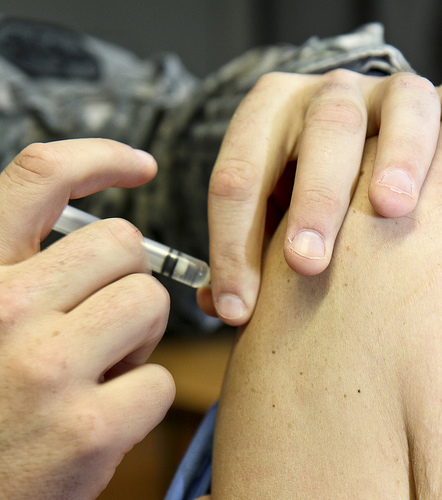
Anti-Vaccine Mothers Discuss Their Thinking amid Backlash
One is a businesswoman and an MBA graduate. Another is a corporate vice president. The third is a registered nurse.
These three mothers — all of them educated, middle-class professionals — are among the vaccine skeptics who have been widely ridiculed since more than 100 people fell ill in a measles outbreak traced to Disneyland. Critics question their intelligence, their parenting, even their sanity. Some have been called criminals for foregoing shots for their children that are overwhelmingly shown to be safe and effective.
February 22, 2015 | Source: ABC News | by Gosia Wozniacka
One is a businesswoman and an MBA graduate. Another is a corporate vice president. The third is a registered nurse.
These three mothers — all of them educated, middle-class professionals — are among the vaccine skeptics who have been widely ridiculed since more than 100 people fell ill in a measles outbreak traced to Disneyland. Critics question their intelligence, their parenting, even their sanity. Some have been called criminals for foregoing shots for their children that are overwhelmingly shown to be safe and effective.
"Contrary to the common sentiment, we are not anti-science," said Michelle Moore, a businesswoman who lives in the affluent Portland suburb of Lake Oswego with her 2½-year-old twin girls. "I'm not opposed to medicine, and I think vaccines have a place. We think it's a medical choice, and it should be researched carefully."
The backlash, much of it from people who fear unvaccinated children could infect their own kids, has been so severe that dozens of anti-vaccine parents contacted by The Associated Press were afraid to speak out. But a handful of mothers agreed to discuss their thinking.
Moore, an MBA graduate who runs an agriculture-related business, traces her feelings to the time she took Lariam, a supposedly safe anti-malaria medication. Instead, she said, the drug saddled her with multiple health complications. She questions whether the government knew about the risks at the time. Health officials now acknowledge Lariam can cause severe side effects, some of which can be permanent.
That experience broke Moore's trust in the medical establishment and launched her on years of research into how vaccines can affect people's health. When she got pregnant, Moore and her husband delayed immunization for Sierra and Savannah.
"It was not an easy decision," she said. "The thought of something happening to them because we chose not to vaccinate is terrifying. But I have so many questions, and I do think it's the right decision for our family."
Nancy Babcock of Spokane, Washington, says people who share her opinions "are being vilified and ostracized." Babcock, a vice president at a bank, told her daughter about her doubts. Then her daughter and her husband looked into the issue, and they decided not to immunize their two children.
"In a community with many young people, those who don't vaccinate are feeling a lot of pressure," she said.
Nationwide, parents who seek an exemption from vaccine requirements are still in a tiny minority. The median total exemption rate for kindergartners during the 2013-14 school year was just 1.8 percent, according to the Centers for Disease Control and Prevention. But some individual schools or communities have higher exemption rates, at times approaching 60 percent or more.
